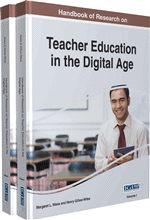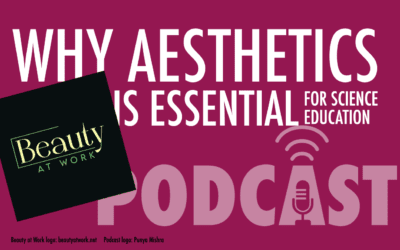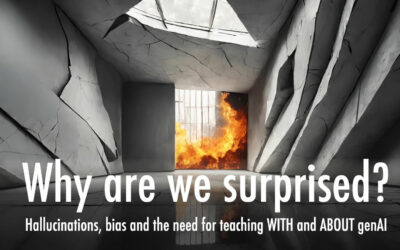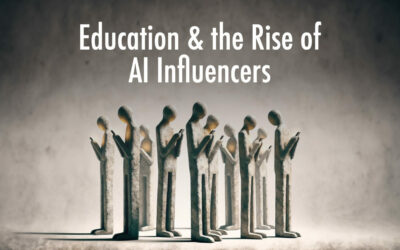It has been almost 5 years since my research interests shifted formally to issues related to creativity, technology and teacher education. This line of work (though less influential than my TPACK related work) has led to multiple journal articles and research studies. It is influenced the classes I teach and in turn my pedagogical experiences have influenced my thinking and writing. Recently Maggie Niess and Henry Gillow-Wiles provided us (my research team The Deep-Play Research group) an opportunity to look back on this line of work and write it up for the Handbook of Research on Teacher Education in the Digital Age. Details, abstract and link to article provided below:
Mishra, P., Henriksen, D. & Mehta, R. (2015). Creativity, Digitality, and Teacher Professional Development: Unifying Theory, Research, and Practice. In In M. Niess, & H. Gillow-Wiles (Eds.) Handbook of Research on Teacher Education in the Digital Age (pp. 691-722). Hershey, PA: Information Science Reference. [Download the article as a PDF]
Abstract:
This article describes the development of a trans-disciplinary framework for creative teaching using technology. In recent years, the authors of this paper (and collaborators) have sought to better understand the role of creativity in educational technology. Our approach seeks to inform theory, research, and practice. In this piece we step back to provide a big-picture view of the process of developing a theoretical framework for creative, transformational teaching with digital technology. We describe the development of our ideas over time, through research projects focused on highly creative teachers and their practices. We describe how we have applied these ideas in teacher education courses devoted to creativity and technology, and developed rubrics for evaluating creative products. At a meta-level we aim to provide a rich example of the reciprocal nature of theory, research, and practice in educational technology. Through this we hope to provide one example of how such a theory/ research/ practice development process works, with the goal of informing future work of this type.





0 Comments